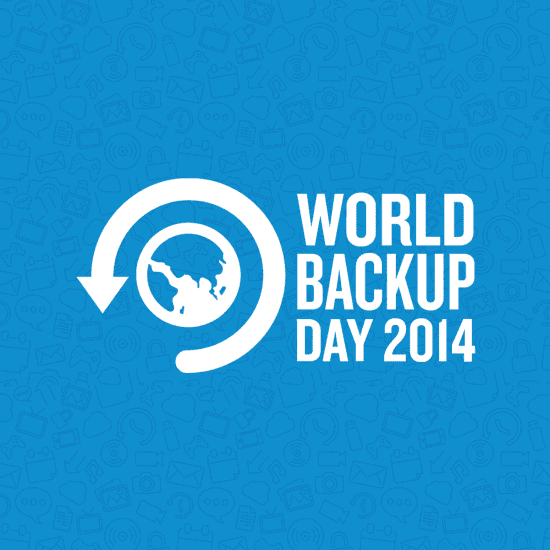Today, Tuesday, 31st March is World Backup Day, and a great time to duplicate any files and folders that may have been forgotten to a dependable place. For businesses, it’s even more important that all critical data is backed up and a sound strategy is in place for keeping files close at hand. According to a November 2014 report by NTT Com Security, while 56% of senior UK executives expect to suffer a security breach, only 49% say all their critical business data is secure, compared with just 63% globally.
To celebrate World Backup Day and remind our readers about the importance of a sound backup strategy, followings are 3 Simple Steps to a Smarter Backup Strategy by Ironmountain.
1. Evaluate your options:
Most businesses run regularly scheduled backups – often daily – to protect themselves from losing more than a day’s worth of data. But which form of data storage should you choose?
- Disk-Based Backup: Disk-based network-attached backup is the choice of many, simply because it’s fast and local. That speed is crucial if yours is a transaction-based business. However, disk arrays are expensive to maintain and don’t keep your backups in a separate, safe location in case of a natural disaster. Disk backups are also always on and connected, making them susceptible to malware attacks.
- Tape-Based Backup: Although offsite tape vaulting has long been thought of as a long-term data-archiving solution, it is still used in backup operations as well. The cost-per-gigabyte of tape storage keeps dropping, and new technologies, such as Web access to tape catalogues and the LTFS file format (which makes tapes look like just another drive), make tape attractive for protecting less-critical data. Best of all, tapes are stored off-site, where they are safe from any disaster that might strike your facilities.
- Cloud-Based Backup: The cloud is used more and more frequently for backup. Why? From an operations perspective, it cuts labour costs and turns a capital expense into an operational one, which is paid for with a predictable subscription. If needs change, you can adjust the terms rather than purchase new equipment. Like tape, the cloud keeps your data safely off-site and, like disk, it can be very fast for data retrieval. A robust cloud service can back up many servers and desktops, regardless of where they are in the world.
2. Evaluate your data security:
No matter how and where you create and store your backups, the end-to-end security of your data is crucial. No matter which form(s) of data storage you choose, you should be encrypting data from the time it leaves your facility until it is returned and restored in your enterprise.
You also need a verifiable chain of custody, which describes any journey your data takes – regulators demand it. In fact, those same regulators may want to know if you are complying with the latest data-centre security standards, especially if you take the cloud route.
To finesse all these challenges, work carefully with your backup service partner to establish the appropriate level of data security. And don’t forget about testing. Your backup data is useless if you can’t get it when you need it, or if the data is corrupted. Any backup service you use should come with regularly scheduled testing to ensure that all systems are ready in case of a business interruption.
3. Find the right technology blend:
With the many storage options available, you can seamlessly combine two or more methods to custom-fit your specific solution. For example, you may want to store full backups inexpensively on tape and reserve local disk space for a smaller portion of high-use files. You can also deploy the cloud once you have formulated your tiered backup strategy. Even small and midsize businesses can take advantage of this flexibility, benefiting from the cost-effectiveness and flexibility of cloud services.
A trusted third-party data protection partner can help you establish a secure data protection programme to schedule your backups and send them to the optimal storage media – whether on or off-site.
Design your plan soon. World Backup Day may come and go, but you should be thinking about backups every day.
For more detail about the backup strategy, please visit here.
About Iron Mountain
Iron Mountain Incorporated (NYSE: IRM) is a leading provider of storage and information management solutions. The company’s real estate network of 64 million square feet across more than 1,000 facilities in 36 countries allows it to serve customers around the world. And its solutions for records management, data backup and recovery, document management and secure shredding help organisations to lower storage costs, comply with regulations, recover from disaster, and better use their information for business advantage. Founded in 1951, Iron Mountain stores and protects billions of information assets, including business documents, backup tapes, electronic files and medical data. Visit www.ironmountain.co.uk for more information.
The opinions expressed in this post belongs to the individual contributors and do not necessarily reflect the views of Information Security Buzz.



